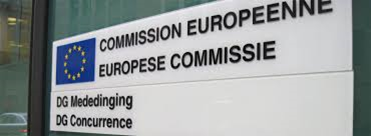The European Court of Justice Judgement on the "endive case"

The European Court of Justice has just adopted its Judgment on the “endive case ". It is an important decision which determines relative scope of agricultural and competition law. The Court does not enter into the details of the case. In European law, when a court has doubts about the interpretation to be given to Community law, it must request for a preliminary ruling to the European Court. The question was related to the practice of concertation on quantities placed on the market and the practice of exchanges of strategic information and their conformity with the European rules.
The European Court of Justice has just adopted its Judgment on the “endive case[1] ". It is an important decision which determines relative scope of agricultural and competition law.
The Court does not enter into the details of the case. In European law, when a court has doubts about the interpretation to be given to Community law, it must request for a preliminary ruling to the European Court. The question was related to the practice of concertation on quantities placed on the market and the practice of exchanges of strategic information and their conformity with the European rules.
The answer, given by the Grand Chamber, is crystal clear and is summarized in the last paragraph of the Judgement:
“Practices that relate to a concertation on prices or quantities put on the market or exchanges of strategic information, such as those at issue in the main proceedings, may escape the prohibition of agreements, decisions and concerted practices laid down in Article 101(1) TFEU if they are agreed between the members of the same producer organisation or the same association of producer organisations recognised by a Member State and are strictly necessary for the pursuit of one or more of the objectives assigned to the producer organisation or association of producer organisations concerned in compliance with EU legislation.”
Inside the producers´organisation (POs), an entity which should market their members´ production, “concertation on prices or quantities put on the market or exchanges of strategic information” are allowed. The Court extends this possibility also to the Associations of Producer Organizations (APOs). In its point 19, the Court recalls that such Association “may carry out any of the activities of a PO”.
The Court has understood that the Common market organisation is based on 2 complementary pillars: the POs, as economic entities, and their APOs which can carry any of the activities of a POs.
The Court, and it is a major difference with the Advocate General[2], do not limit the extension of the exception to competition law to economic APOs. It is the consolidation of the great leap forward in the organization of the sector implemented by the 2006 reform.
In order for this proposal to be adopted by the Commission, and to avoid a total opposition from DG COMPETITION, DG AGRI a restriction into the text: POs should not have a dominant position in their markets. This was discriminatory because the other actors were subject only to the “no abuse of a dominant position" requirement. Once the proposal was approved by the College of Commissioners, it was foreseen to remove this small piece of sentence in the real end of the negotiation, as a last concession to producers Member States. Unfortunately, the French minister, Christine Lagarde, did not request it in her last minute demands and it stays in the legal text until the Ciolos reform. It was one of the amendments presented by Michel Dantin, European parliament rapporteur for single CMO.
[1] http://curia.europa.eu/juris/document/document.jsf?text=&docid=196626&pageIndex=0&doclang=EN&mode=req&dir=&occ=first&part=1&cid=749451
[2] https://curia.europa.eu/jcms/upload/docs/application/pdf/2017-04/cp170039en.pdf